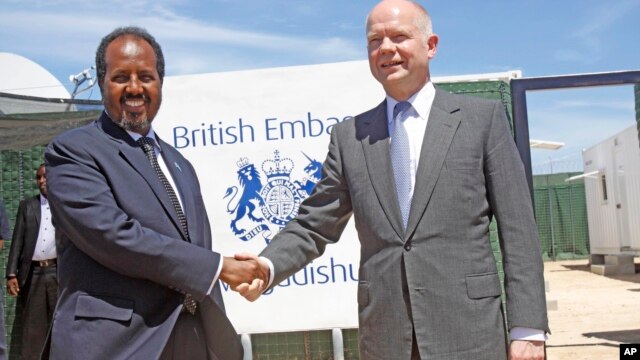Nairobi - A spectacular attack on Sunday by Shabaab Islamists in Mogadishu, unprecedented in Somalia in terms of its operational complexity, has enabled the extremists to show they remain a serious threat.
Though they are widely described as severely weakened, the attack by the al-Qaeda linked militants shows that the authorities have not restored security to Mogadishu as they like to claim.
Nine assailants, wearing police or army uniforms and likely all wearing explosive belts, attacked the main courthouse in the Somali capital.
Three of them blew themselves up to clear the way for the six others, who took hostages and started battling the Somali and African Union troops guarding the courthouse. The gunfight lasted for several hours.
Thirty minutes into the attack, as military reinforcements were arriving and the wounded were being evacuated, a car bomb was detonated in the zone.
The attack, which left at least 34 people dead, is the bloodiest since October 2011, when more than 80 people were killed some two months after the Shabaab abandoned fixed positions in Mogadishu.
Experts said the modus operandi of Sunday's attack is one frequently seen in Afghanistan, but so far unprecedented in Somalia.
"The combined use of suicide bombers, light weapons and car bombs is a first in Somalia," explained a military source in the African Union force (Amisom), who, like all the other sources questioned, asked to remain anonymous.
"There has not been any attack of this level of complexity in Mogadishu. It's a first," confirmed a regional security expert.
Significant efforts
A convoy from the Turkish Red Crescent was also hit by a car bomb on Sunday. According to the regional security expert there is no evidence the Turks were targeted. The car bomb may rather have been destined for the attack on the courthouse.
This "spectacular attack" demonstrates on the part of Somalia's Islamists "a will to regain a foothold in Mogadishu and to prove to the outside world that the situation in Mogadishu is not so good, despite the line often repeated by the president and the prime minister over the past few months", the Amisom source said.
The Shabaab want to "create a threatening climate and show that they're not finished yet", though often described as a spent force, the source added.
The Amisom source went on to say that Sunday's operation probably took four months of "significant efforts" and that it was likely prepared by Amniat, the Shabaab’s intelligence cell, which has agents operating in Mogadishu.
According to the expert questioned by AFP, "over the past month or two the Shabaab have been regaining strength."
He cited a recent spate of attacks on Kismayo, one of the final bastions of the Shabaab that they abandoned at the end of September.
"It seems that they got a new lease of life after the failure of the French commando operation [in January, aimed at freeing a French intelligence agent taken hostage]" and from the announcement of the withdrawal of Ethiopian troops.
This type of attack that the Afghan Taliban is known for would seem to confirm the increasing presence in Shabaab ranks of fighters who have operated in Afghanistan and Pakistan.
The increasing sophistication of the explosive devices used by the Shabaab, notably the appearance a few months ago of remote-controlled bombs, would tend to confirm this hypothesis.
State of shock
At least one Pakistani jihadi has been reported in the Shabaab ranks in the past few months, one of the analysts questioned said.
Sunday's attack did not give the Shabaab any tactical advantage but it enabled the Islamists to undermine the impression - both locally and internationally - that the new administration and Somali armed forces are up to the task of ensuring security.
"The population [of Mogadishu] - and probably the security forces as well - are in a state of shock," said another analyst.
But he said only time will tell whether this attack represents a new tactic for the Shabaab, or whether it is a one-off.
One of his colleagues said that Mogadishu is "tremendously more secure than it was" and said that Somali soldiers, backed by Amisom forces, managed to limit the damage on Sunday.
But the military source with Amisom said: "If something like this is repeated, questions will be asked" on infiltration and on the ability of the Somali forces really to maintain security.
"This is clearly a show of force" on the part of the Shabaab, even if "from a military point of view they are really in a critical situation," one analyst said.
"It is indeed difficult to organise this sort of attack, but it is still easier than holding a military front," the expert said.
- AFP
